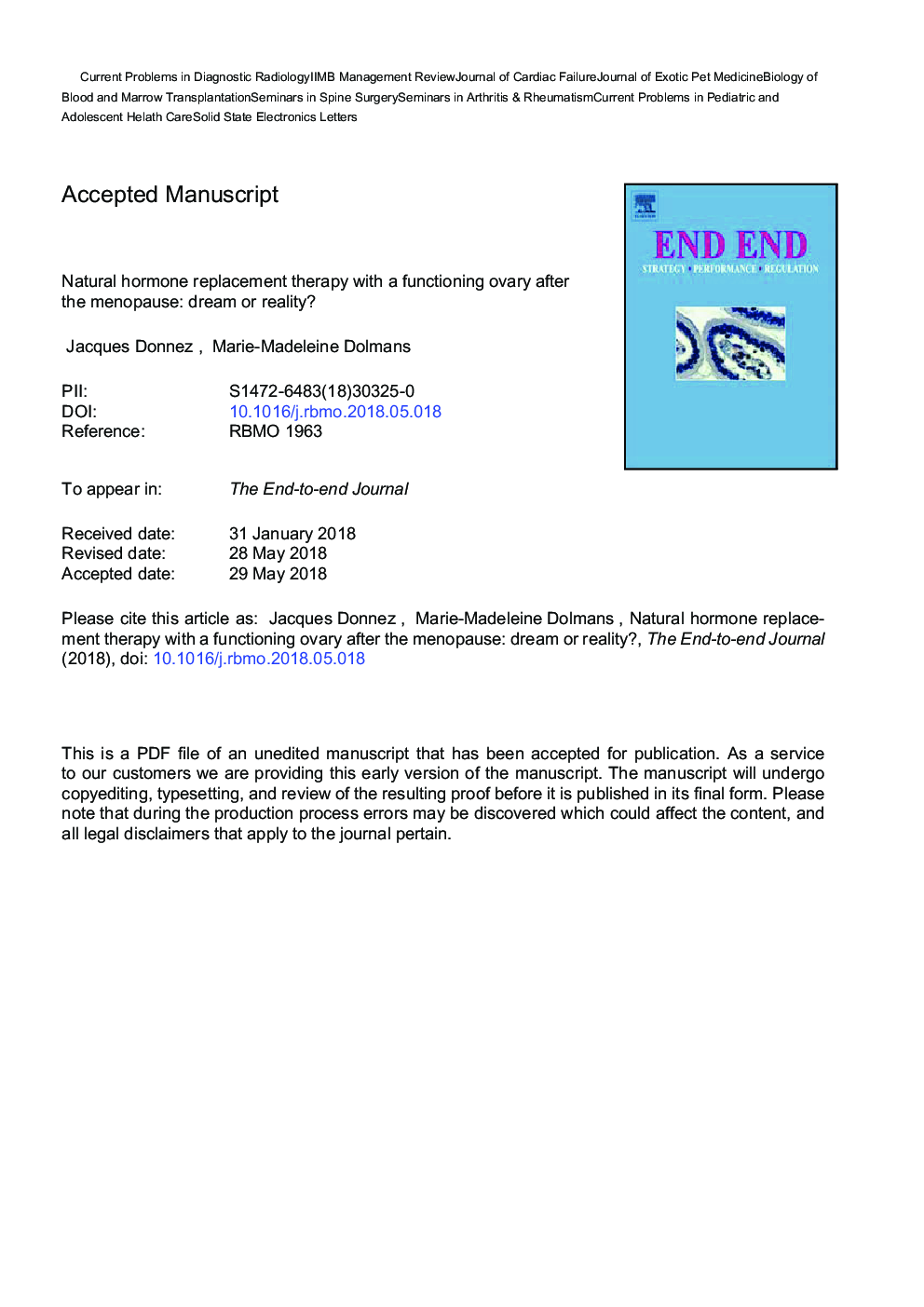| Article ID | Journal | Published Year | Pages | File Type |
|---|---|---|---|---|
| 11008324 | Reproductive BioMedicine Online | 2018 | 21 Pages |
Abstract
At the dawn of humanity, it was rare to live beyond the age of 35 years, so the ovary was intended to function for a woman's entire life. Nowadays, it is not unusual for women to live into their 80s. This means that many of them spend 30-40% of their lives in the menopause at increased risk of various conditions associated with an absence of oestrogens (cardiovascular disease, bone mineral density loss). Reimplantation of frozen-thawed ovarian tissue is able to restore long-term ovarian endocrine function that can persist for more than 7 years (12 years if the procedure is repeated). If ovarian tissue reimplantation is capable of restoring ovarian activity after menopause induced by chemotherapy, radiotherapy, surgery, or a combination of all three, why not propose it to recover sex steroid secretion after natural menopause and prevent menopause-related conditions in the ageing population? In this application, the graft site could be outside the pelvic cavity, e.g., forearm or rectus muscle. Could ovarian tissue freezing at a young age followed by reimplantation upon reaching menopause be the anti-ageing therapy of the future? Sufficient existing evidence now surely merits serious debate.
Related Topics
Health Sciences
Medicine and Dentistry
Obstetrics, Gynecology and Women's Health
Authors
Jacques Donnez, Marie-Madeleine Dolmans,
